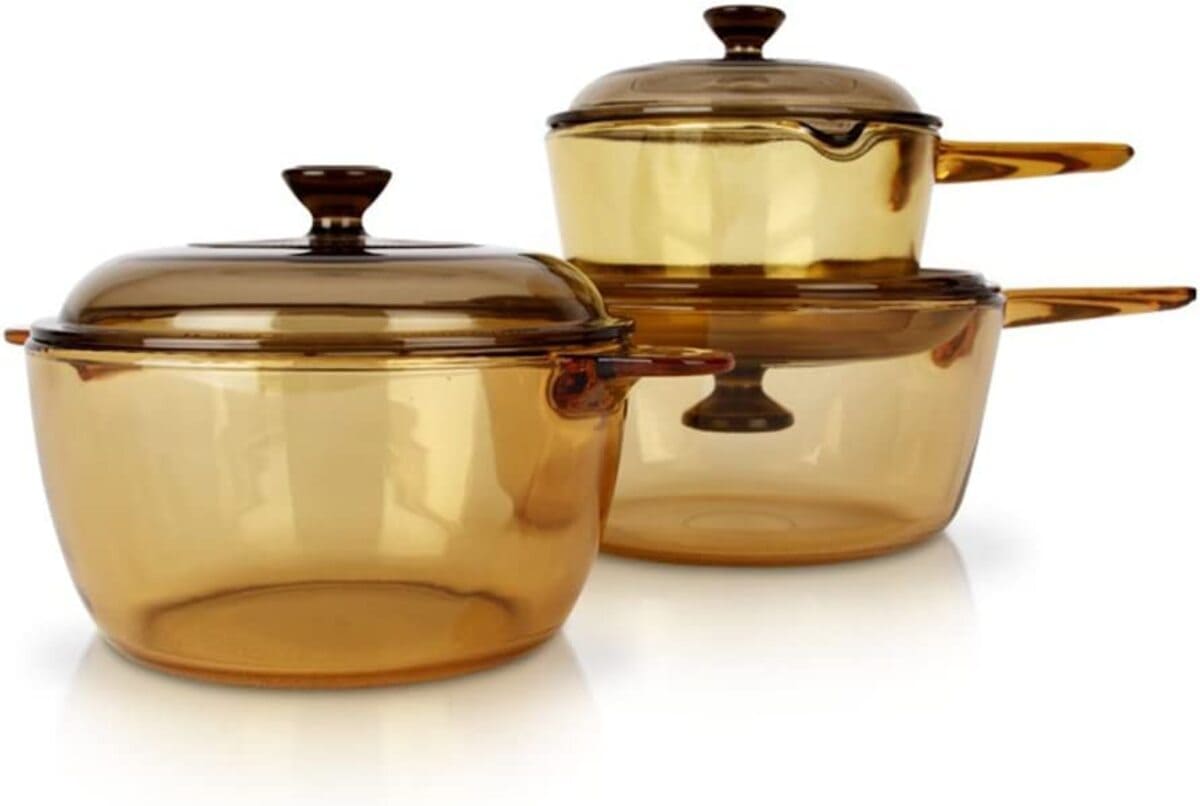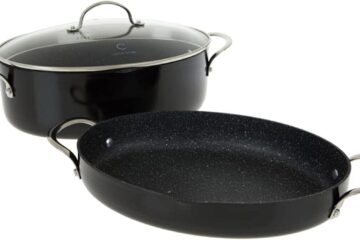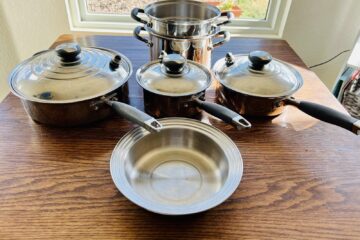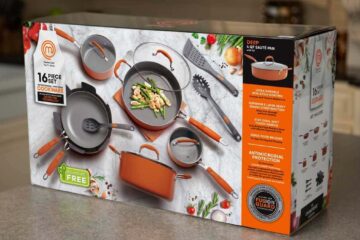Glass cookware has been around for quite some time and is a popular choice for many home cooks. However, the question of whether or not glass cookware is healthy has been a topic of debate. While some people believe that glass cookware is a safe and healthy option, others have concerns about the potential risks associated with using it.
Glass cookware is known for being non-reactive, meaning that it does not release harmful chemicals into food. This is because glass is an inert material that does not contain any harmful substances. Additionally, glass cookware is easy to clean and does not absorb flavors or odors, making it a great choice for cooking a variety of different dishes. However, despite these benefits, there are also some potential drawbacks to using glass cookware that should be considered before making a purchase.
What is Glass Cookware?
Glass cookware is made of tempered glass and is a popular alternative to traditional metal cookware. It is non-reactive, meaning it does not release any chemicals into the food. This makes it a healthy option for cooking and baking. Glass cookware is also usually inexpensive and is safe to place in the microwave and dishwasher.
One of the key advantages of using glass cookware is that it is safe for storing all types of food in it. Glass cookware does not react with acidic foods, making it a great option for cooking with tomatoes, citrus fruits, and other acidic ingredients. It also does not absorb any flavors or odors from the food, which makes it ideal for cooking a variety of dishes.
However, glass cookware has some downsides. It does not distribute heat evenly, which can result in uneven cooking. It is best suited for dishes like baked pasta, quick breads, and pot pies. Additionally, it can be hard to find glass replacements for all your cookware needs, but availability is improving as more people look for alternatives to non-stick cookware.
Benefits of Glass Cookware
When it comes to cookware, glass is a popular choice for many people. Here are some of the benefits of using glass cookware.
Non-Toxic Material
One of the primary benefits of glass cookware is that it is non-toxic. Glass is an inert material, which means that it does not react with food or release any harmful chemicals or toxins. This makes it a safe and healthy option for cooking and storing food.
Versatility
Glass cookware is also versatile and can be used for a variety of cooking methods. It can be used in the oven, microwave, and even on the stovetop (although caution should be taken when using glass cookware on a gas stove). This makes it a convenient option for those who want to use one type of cookware for multiple purposes.
Easy to Clean
Glass cookware is easy to clean and maintain. It can be washed in the dishwasher or by hand, and it does not absorb any odors or flavors. This means that it can be used for a variety of dishes without worrying about any residual flavors or smells.
Drawbacks of Glass Cookware
While glass cookware has its advantages, it also has some drawbacks that should be considered before making a purchase.
Fragility
One of the most significant drawbacks of glass cookware is its fragility. Glass is prone to cracking, chipping, and breaking, especially when exposed to sudden temperature changes. This makes it less durable than other cookware materials, such as stainless steel or cast iron. If not handled with care, glass cookware can break, creating a safety hazard and requiring replacement.
Poor Heat Distribution
Another drawback of glass cookware is its poor heat distribution. Glass is a poor conductor of heat, meaning that it takes longer to heat up and does not distribute heat evenly. This can result in hot spots and uneven cooking, making it less suitable for certain dishes, such as searing meat or stir-frying vegetables.
Limited Cooking Techniques
Glass cookware also has limited cooking techniques. Due to its poor heat distribution, it is best suited for slow cooking methods, such as baking or roasting. It is not ideal for high-temperature cooking methods, such as frying or broiling. Additionally, glass cookware cannot be used on induction cooktops, limiting its versatility in the kitchen.
Is Glass Cookware Healthy?
Glass cookware has been a popular choice for many home cooks due to its non-reactive properties and easy-to-clean surface. However, many people wonder if glass cookware is actually healthy to use. Here are some potential health risks, safety measures, and alternatives to consider when it comes to glass cookware.
Potential Health Risks
One of the main concerns with glass cookware is the risk of it breaking or shattering. This can be a safety hazard and can also contaminate food with glass shards. Additionally, some types of glass cookware may contain lead or other harmful chemicals, which can leach into food during cooking.
Safety Measures
To reduce the risk of glass cookware breaking or shattering, it is important to avoid sudden temperature changes. This means that you should not place hot glass cookware on a cold surface or vice versa. It is also important to handle glass cookware with care and avoid dropping it or hitting it against hard surfaces.
To ensure that glass cookware is free from harmful chemicals, it is recommended to purchase high-quality glass cookware from reputable brands. Look for cookware that is labeled as lead-free and made from tempered glass, which is more durable and resistant to breakage.
Alternatives
If you are concerned about the potential health risks of glass cookware, there are several alternative options to consider. Ceramic cookware is a popular choice, as it is non-reactive and can be used at high temperatures. Stainless steel and cast iron are also good alternatives, as they are durable and do not contain harmful chemicals.
Conclusion
In conclusion, glass cookware can be a healthy and safe option for cooking. It is important to consider the pros and cons of glass cookware before making a purchase. Some of the advantages of using glass cookware are that it is non-reactive, does not contain harmful chemicals, and can be used for a variety of cooking methods. However, there are also some disadvantages to using glass cookware, such as its fragility and potential for shattering.
When choosing glass cookware, it is important to look for high-quality brands that are made from tempered glass. This type of glass is more durable and less likely to break or shatter. It is also important to follow the manufacturer’s instructions for use and care, as improper use can lead to breakage or other issues.
Overall, glass cookware can be a great option for those looking for a healthy and safe way to cook. However, it is important to weigh the pros and cons and choose the right type of glass cookware for your needs. By doing so, you can enjoy the benefits of this versatile and healthy cookware option.



